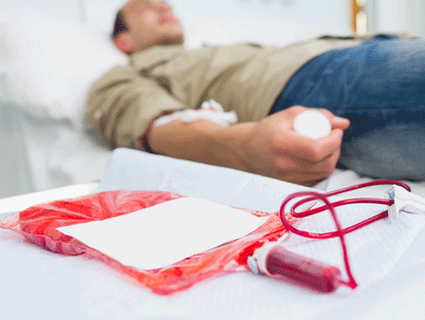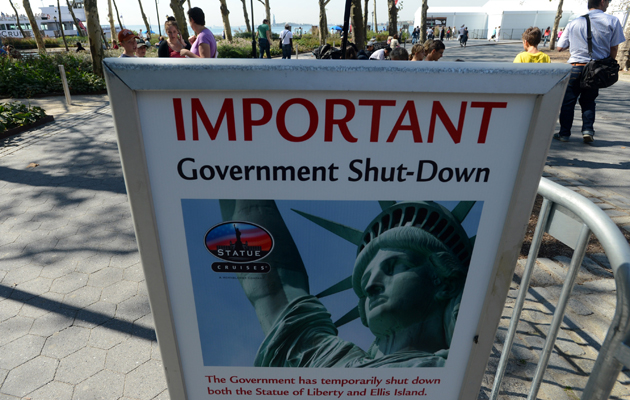
<a href="http://www.shutterstock.com/pic-117435451/stock-photo-focus-on-a-blood-bag-in-hospital-ward.html?src=58Yc2UGb_aOrHGTmBuHvYg-1-33">wavebreakmedia</a>/Shutterstock
Here’s how the government shutdown may literally be killing people: by causing blood shortages.
For all the scorn heaped on government employees, some people forget that the faceless bureaucrats who populate Washington are often, in fact, a bunch of do-gooders—people who genuinely believe in the notion of public service. As such, they contribute to the public good in a lot of ways that are taken for granted, like their immense contribution to local blood banks. Thirty-eight percent of the population is eligible to give blood, but only 5 percent actually does so. A lot of that 5 percent apparently works for the federal government. Thanks to the shutdown, in just two days, four federal agency blood drives scheduled by one DC-area health care system have been canceled. The regional Red Cross has had to cancel six others in the Washington region.
Inova Blood Donor Services projects that the cancelations will result in its projected loss of 300 donations that would have helped 900 patients in DC, Maryland, and Virginia. Inova’s donated blood collections supply 24 hospitals, which bank much of the blood for inevitable disasters or, say, terrorist attacks. The Red Cross is suffering from similar disruptions, projecting the loss of 229 donations, each of which could potentially save up to three lives. A single major trauma event can easily deplete a hospital’s entire blood store. The longer the shutdown goes on, the worse the situation is likely to get.
Rebecca Manarchuck, marketing director for Inova Blood Donor Services, says the Washington area supplies were already low, thanks to reduced collection rates that historically happen in the summertime. The shutdown is only compounding the shortage. Blood drives are carefully scheduled and planned well in advance. Doing them at government offices requires a host of logistical arrangements because of tight security and other considerations, meaning that rescheduling the drives for a later date won’t be an easy task. And even then, donated blood can’t even be used until three days after it’s given to allow time for all the screening tests, resulting in some lag time before it can be given to patients in need.
Inova is attempting to make up for the loss by encouraging people to donate blood at their three centers in Virginia. (The Red Cross is also encouraging people to donate at local chapters.) Members of Congress are encouraged to make an appointment here and here.








